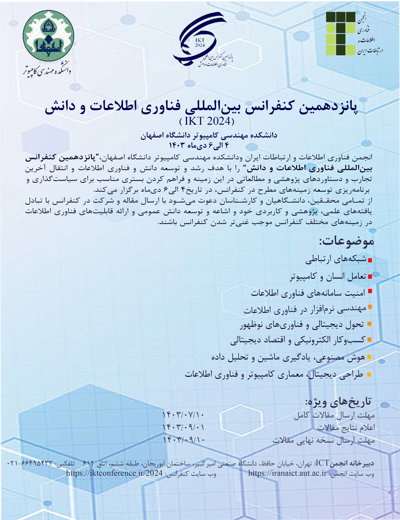0% Complete

نویسندگان :
کلمات کلیدی :
چکیده :
لیست مقالات بایگانی شده
Farbod Bijary - Mohsen Ebadpour - Amirhosein Tajbakhsh
Fatemeh Ahmadi - Mohammad Javad Parseh - Ehsan Amiri
صبا عارفنیا - مهدی هاشمزاده - امین گلزاری اسکوئی
Maryam Karimi - Taghi Javdani Gandomani - Mahdi Mosleh
Negin Bagheri Renani - Elham Yaghoubi - Mina Mohammadirad
Ali Bavand - Mohammad Mehdi Homayounpour - Ahmad Nickabadi
Omid Mohammadi Kia - Mahmood Neshati - Mahsa Soudi Alamdari
Maryam Taheri - Mohammad Reza Keyvanpour - Mohadeseh Saadat Mousavi
دکتر باقر رحیم پور کامی - سیدمحمد سیدی برشی باقر رحیم پور کامی - سیدمحمد سیدی برشی -





